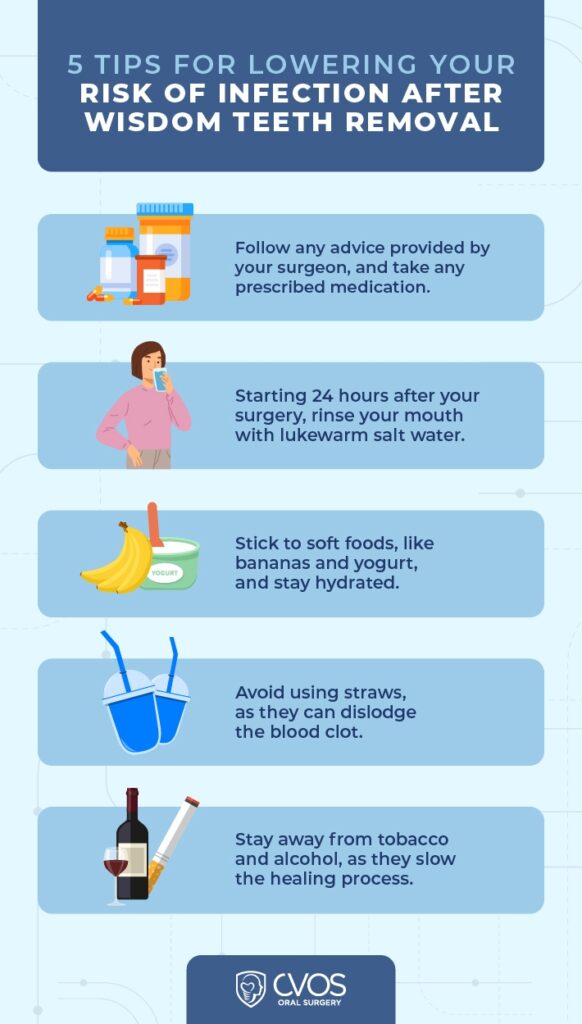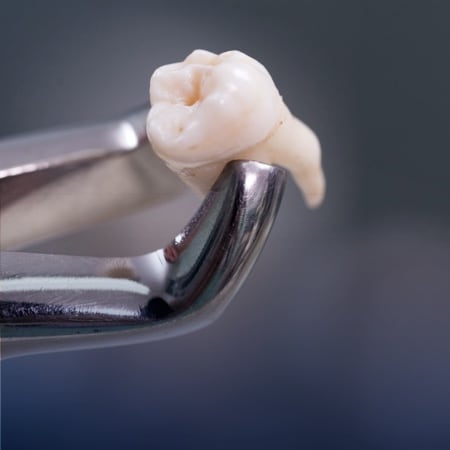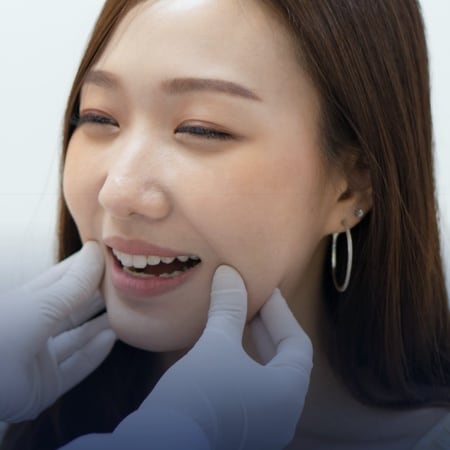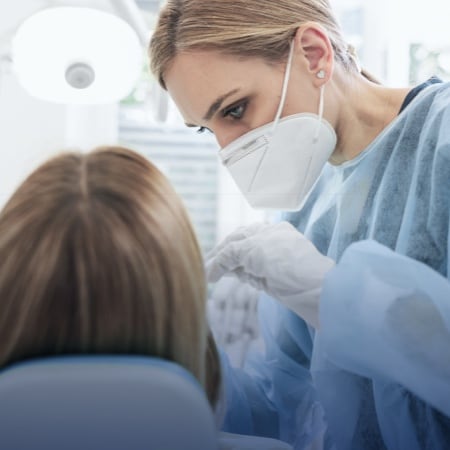Wisdom teeth emerging is a natural part of growing up. But for many people, these new teeth can be extremely problematic. They can push and shift your existing teeth, and in some cases, even cause serious infections. That’s why wisdom tooth removal is a common standard of care.
To prevent wisdom teeth infections after removal, follow any and all aftercare instructions. Maintain your oral hygiene with a soft-bristled brush, stick to soft foods for a few days, and stay hydrated. If you notice anything unusual or experience significant discomfort after having your wisdom teeth removed, you should contact your oral surgeon for additional care.
Why Choosing the Right Professional Matters for Wisdom Teeth Removal
Not all oral health professionals have the same level of expertise. While general dentists can perform some extractions, oral surgeons are specifically trained in oral surgery. This training includes additional years of specialized education about the human mouth, face, and jaw.
Oral surgeons are equipped with extensive experience. They can assess the position of your wisdom teeth, determine the right technique for your extraction to minimize post-surgical pain and swelling, and reduce the risk of complications during and after your surgery.
When complex cases are involved, like impacted wisdom teeth or proximity to nerves, an experienced surgeon can use their expertise to lower the risk of complications. With the right oral surgeon at your side, your risk of post-surgical infection can be significantly lower.

How to Tell if You Have an Infection After Wisdom Tooth Removal
It’s normal to feel some soreness or swelling after surgery. However, wisdom tooth extraction can sometimes result in other complications that it’s important to be aware of—including infections. Never ignore these signs of post-surgical infection:
- Swelling that worsens over time instead of improving.
- Persistent or severe pain that doesn’t ease with medication.
- Redness and warmth around the surgical site.
- Pus or an unpleasant taste in your mouth.
- A fever or chills.
If you notice any of these, contact your oral surgeon. We can evaluate your symptoms and determine what treatment can get your recovery back on track.
Why Post-Surgery Care Is So Important
Once your wisdom teeth are removed, proper aftercare is key. This isn’t just about your comfort—it’s about avoiding complications wherever possible.
Without proper care, bacteria can settle into the surgical site. These multiply, leading to infections that can cause intense pain, swelling, and delayed healing. An untreated infection can also spread. This can cause systemic issues, abscesses, and more.
Without proper aftercare, you may also develop an unpleasant condition called a dry socket, where the protective blood clot dislodges and exposes the underlying bones and nerves.
Can You Prevent Wisdom Tooth Infection?
Taking care of your mouth after wisdom teeth removal plays a huge role in preventing infections. After your surgery, make sure to follow these steps:
- Rinse your mouth gently with warm salt water starting 24 hours after the surgery.
- Stick to soft foods and avoid anything that requires chewing.
- Take all prescribed medications, including antibiotics, as directed by your oral surgeon.
- Keep your head elevated when lying down to reduce swelling and promote drainage.
- Avoid using straws to prevent dislodging the blood clot, which could lead to a dry socket.
- Avoid tobacco and alcohol, as they slow the healing process.
If you receive any additional instructions, follow them. Remember—your surgeon has significant experience, and their advice can significantly lower the risk of complications. With these tips, you can reduce the chances of something going wrong during your recovery.

Tips for a Smoother Recovery After Wisdom Teeth Removal
To make your recovery as smooth as you can, it helps to:
- Use ice packs consistently during the first 48 hours to reduce swelling.
- Stay hydrated with plenty of water. Avoid sugary or carbonated drinks.
- Take breaks to rest, and ensure you’re not overworking your body.
- Set reminders for any follow-up appointments your oral surgeon recommends.
Small adjustments to your daily routine can go a long way during this time. Remember—your body needs time to heal, and these tips can help you get back to normal faster.
When to Return to Your Surgeon
If you ever notice pain, significant discomfort, or excessive bleeding, don’t ignore it. These can all indicate a post-surgery complication. Your surgeon has the experience needed to help you recover smoothly and avoid long-term problems like infections.
Pain is common for up to 5 days following the surgery, with it peaking roughly 2 days after the teeth are extracted. Generally speaking, symptoms should recede within a few days, potentially lasting up to 2 weeks. If your symptoms worsen during this time, that’s a good sign that you should contact your oral surgeon.
Our Team Is Here to Help
Recovering from wisdom teeth removal doesn’t have to be difficult. With the right aftercare, you can significantly lower your risk of infections, and soon, you’ll be back to normal. Make sure to listen to your surgeon at all times—that’s the key to minimizing risks.Wisdom teeth removal is a delicate procedure, and choosing an experienced team like CVOS Oral Surgery can make all the difference. Trust our specialists to handle your extraction with care and expertise. Contact us today to book your consultation.










